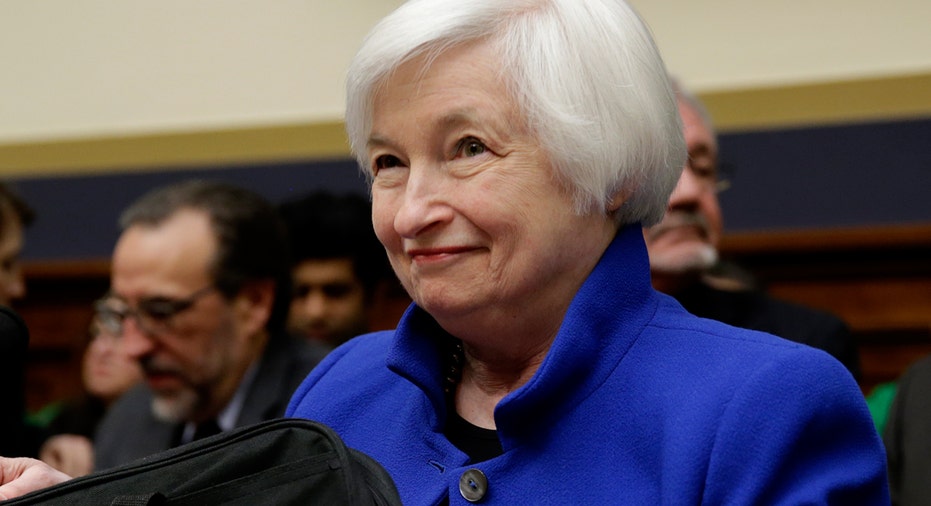Time for the Federal Reserve to Do its Job

Watching the Federal Reserve has been great sport for generations of investors. We dissect Fed speak like State Department communiques. Nobody was more challenging to disassemble than Fed Chair Alan Greenspan who originated nuggets like “irrational exuberance”,” hysterical antagonism toward the gold standard” and, my favorite, “If I turn out to be particularly clear, you probably misunderstood what I said.”
But more than any time I can remember the Fed has become a debating society. Fed presidents and the vice chair tend to be brilliant, articulate, persuasive and often less dense than Mr. Greenspan’s lyrical musings. Businesspeople understand precisely what Fed officials are saying—especially since policy commentary has taken a turn toward specifics—like calling for a 0.25% September rate hike.
We are a long way from the Greenspan thicket. But are we better served?
Today there are too many voices and they are hard to parse. At a recent Shanghai event two (of 12) Fed bank presidents graced the agenda. Eric Rosengren, Boston Fed chief, is an expert on banking and finance with a clutch of degrees and consultancies with Japanese financial institutions trying to restart that economy. Charles Evans, Chicago Fed leader, has focused his research on monetary policy and its impact on the U.S. economy, inflation and the markets.
Clearly both men are well suited to their job and to the task of their presentations. Rosengren explained inflation targets have been met and the economy, despite imperfections, was chugging along. He encouraged rate hikes sooner than later—Fed-speak interpretation: Hike rates in September with more to come in a series. Evan’s tale of the Midwest economic travails pointed him to more dovish behavior and a pause. Translation: No September hike, and if December is necessary for credibility, make it “one and done” until the heartland economy recovers.
As “taper tantrums” pumped market volatility, the whole stock market hung in suspended anticipation for a Chicago speech in which Fed Governor Lael Brainard, reiterated her position-- raising rates now is imprudent.
By repeating herself, Brainard moved the S&P 500 up 20 points. You have not heard the last of her, that is for sure.
What is not certain is whether the Fed speaks with too many voices-- are there too many opinions when only one really counts?
With business uncertainty and a looming election isn’t it time to take some guesswork out of fed-watching? Fed Chair Janet Yellen should do her job, make a plan, identify yardsticks and, when ready, raise rates with a cogent outline for the future. Saying decisions will be “data dependent” exhibits a vast command of the obvious.
Let’s recall the past year. A rate hike was signaled in September until China stalled its currency. We skipped to December and raised interest rates a quarter of a per cent—hardly a terrible swift sword. As many as three more rate hikes were indicated. A taper tantrum followed. January market swoons left many investors in a hole but the market recovered to repeated record highs. The three-hike guidance withered with mixed economic results, as quarterly Fed meetings became Hamlet soliloquies.
It is wrong to micromanage the Fed. But what used to be quiet riots in the Japanese government bond market, Beijing and the EU now have direct impact on Main Street USA. Why? Because world central bank balance sheets have ballooned from $5 trillion in 2007 to $18 trillion today. America’s Fed balance sheet has swelled to $4 trillion from $1 trillion pre-crash. Dazed, Japan and the EU have paused to catch their breath.
These massive interventions have skirted disaster, but there is little evidence yet that quantitative easing does much to grow economies.
Today the U. S. enjoys unmatched economic supremacy, whatever our shortcomings. That position of strength requires a Federal Reserve that speaks with a clear vision and a voice of leadership. No one on the globe is better positioned than Yellen to make those explicit statements. Let’s end the ready, aim-aim-aim monetary debates. Let’s pick a path and cease our over reliance on monetary accommodation. Near zero rates are an expensive luxury with diminishing returns for all Americans.
Rate hikes are a matter of when, not if. Let’s pick our plan, take our stand and lead the world’s economy with one monetary voice matched with fiscal leadership to address the structural unemployment and inequalities that bedevil us.



















